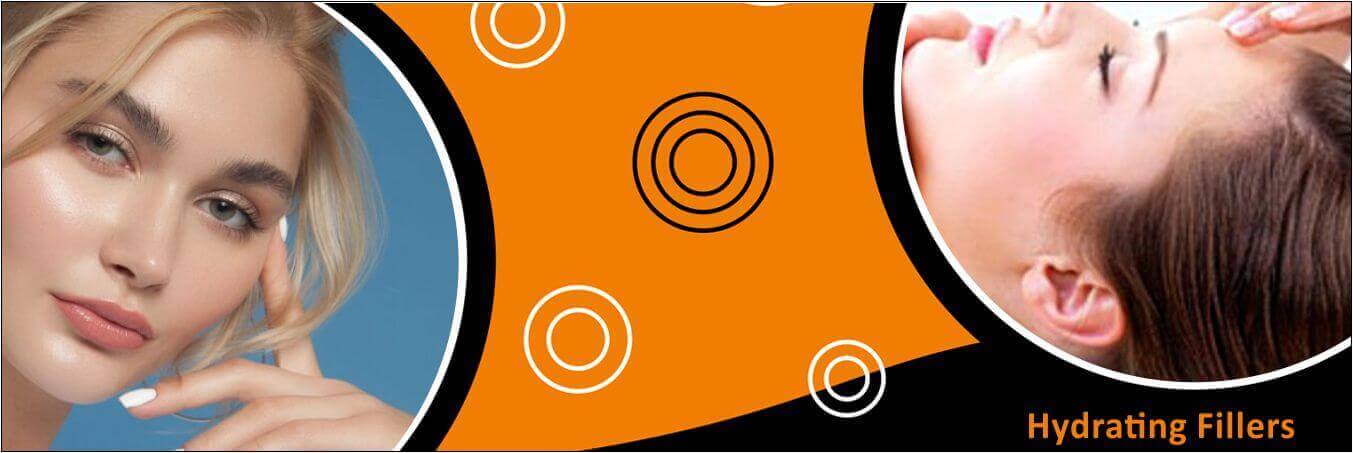


Hydration is an important part of achieving a healthy skin tone and elasticity. However, our skin may dry out as its natural levels of hyaluronic acid diminish due to age, smoking, sun exposure, and environmental factors. This is most noticeable in areas that are more exposed to the elements, such as the face, neck and hands.
Dermal fillers such as Restylane Vital and Juvederm Hydrate can be used to great effect as part of a long-term approach to skin hydration treatment. They work by increasing the levels of hyaluronic acid in the skin, leaving it hydrated and restoring a healthy, younger looking glow.
The benefits of Hydration treatments
Non-permanent dermal fillers provide a safe method of instantly refreshing and hydrating your skin. The results that can be achieved using dermal fillers are stunning and natural looking. By using fillers for hydration treatments, we are able to effectively replenish the depleted levels of hyaluronic acid in your skin to restore a healthy glow.
Types of Dermal Filler treatments
We use a range of hyaluronic acid fillers, such as Restylane Vital and Juvederm Hydrate. These are non-permanent fillers and their effects typically last for six to 12 months. The hyaluronic acid used in these dermal fillers is produced biosynthetically by bacterial fermentation. (Hyaluronic acid is a natural substance that is found throughout your body. It gives volume to the skin, lubricates the joints and gives the eyes their shape).
Dermal fillers are gel-like substances that are injected beneath the skin to restore lost volume, smooth lines and soften creases, or enhance facial contours. More than 1 million men and women annually choose this popular facial rejuvenation treatment, which can be a cost-effective way to look younger without surgery or downtime.
The dermal fillers we use here at PHI all belong to the Juvederm Vycross range, and are hyaluronic acid-based. Hyaluronic acid (HA) is a substance that naturally occurs in skin, that retains up to 1000 times its own weight in water, making it perfect for treatments like non surgical rhinoplasty, non surgical chin augmentation, and lip enhancement, as well as general skin hydration.
Though they can affect anyone, dark circles are most common in people who:
1) Are elderly
2) Have a genetic predisposition to this condition (periorbital hyperpigmentationTrusted Source)
3) Are from non-white ethnic groups (darker skin tones are more prone to hyperpigmentation around the eye area)